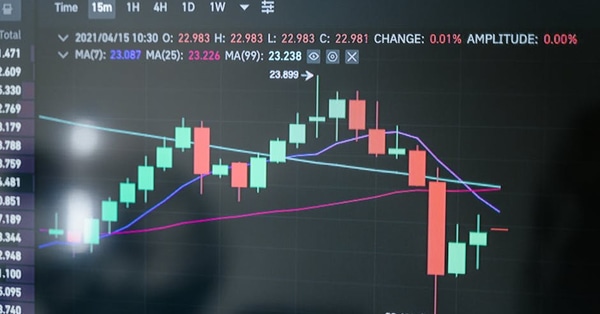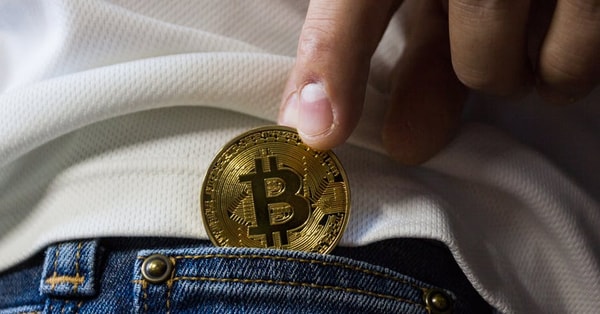Balancing Trust: The Impact of the $128M Balancer Hack on DeFi
The $128 million hack of Balancer has sparked a debate on trust in DeFi. Experts weigh risks versus rewards in decentralized finance.
The decentralized finance (DeFi) landscape has once again been rocked by a significant security breach, as Balancer, a veteran decentralized exchange (DEX), suffered a major hack on Monday, resulting in a staggering loss of over $128 million. This incident has ignited a heated debate among experts and investors regarding the implications for trust in DeFi platforms, particularly those that are well-established and have undergone auditing processes.
On-chain data revealed that the hacker successfully siphoned off approximately $128 million in digital assets from Balancer’s v2 protocol, transferring these funds to their wallet across multiple blockchains. The stolen assets included significant amounts of Wrapped Ether (WETH), osETH, and staked Ether (wstETH), among others. Specifically, the hacker obtained about 6,587 WETH valued at approximately $24.5 million, 6,851 osETH worth around $26.9 million, and 4,260 wstETH totaling about $19.3 million, according to security firm PeckShield.
This breach marks Balancer’s largest hack to date and has sent shockwaves through the DeFi community, prompting many to reconsider their perceptions of security in the sector.
The immediate repercussions of the hack were felt in the market, with Balancer’s native token, BAL, experiencing an 11.1% decline, dropping to $0.87. Furthermore, the total value locked (TVL) in the Balancer protocol plummeted from $776 million to $406 million within a mere 24 hours, according to data from DeFiLlama. This drastic reduction in TVL highlights the vulnerability of DeFi platforms and the potential for rapid shifts in investor confidence.

The Balancer hack has ignited a broader conversation about the inherent risks associated with DeFi investments. Proponents of DeFi argue that these risks are well-known and must be accepted as part of the journey toward higher yields. In many cases, investors are drawn to DeFi platforms due to the potential for enhanced returns compared to traditional financial systems. However, critics assert that when well-audited platforms like Balancer fall victim to significant exploits, it raises serious questions about the overall security and reliability of the DeFi space.
Experts are divided on the implications of the Balancer exploit. Some believe that such incidents are a natural part of the evolving DeFi landscape. They argue that as long as investors are aware of the risks and conduct thorough due diligence, they should not lose faith in the potential of decentralized finance. Others, however, point to the need for stricter security measures and more robust insurance protocols to protect users from future incidents.
“This hack serves as a stark reminder that security is paramount in the DeFi space,” said a prominent blockchain security expert. “Even established platforms are not immune to vulnerabilities, and users must remain vigilant.”
The question of trust in DeFi is increasingly becoming a critical issue as the community grapples with the aftermath of the Balancer hack. Investors must weigh the potential for high returns against the risks of significant losses. This delicate balance poses a challenge for developers and investors alike.
In response to the hack, Balancer has pledged to investigate the incident thoroughly and to implement measures aimed at enhancing security. The hope is that such initiatives will help restore investor confidence and showcase the resilience of the DeFi ecosystem.
The Balancer hack serves as a pivotal moment for the DeFi community, emphasizing the importance of security and trust in a space that is still maturing. While some may view this incident as an unfortunate setback, others see it as an opportunity for growth and improvement. As the DeFi landscape continues to evolve, the ability to learn from such incidents will be crucial in shaping the future of decentralized finance.

As discussions around security and trust persist, the community remains optimistic that with time, better practices will emerge, paving the way for a more secure and reliable DeFi ecosystem.
For ongoing updates and insights into DeFi and Web3 news, visit The Defiant.
Related Posts
Unlock Your Digital Marketing Potential: A Step-by-Step Guide
Ready to elevate your marketing game? Discover essential tips and strategies in this comprehensive guide to mastering digital marketing.
Unlock Your Day: 10 Time Blocking Strategies for Success
Struggling to balance work and life? Discover how time blocking can transform your productivity and help you reclaim your day. Let's dive in!
Unlocking DeFi: 5 Essential Marketing Strategies for 2024
Curious about how to boost your DeFi project in 2024? Discover five key marketing strategies that can help you ride the wave of change in decentralized finance.
5 Game-Changing Techniques for Remote Team Success
Discover five innovative strategies to enhance collaboration in your remote team. Let's tackle the challenges of remote work together!
10 Time Management Hacks for Remote Work Success
Struggling to juggle tasks while working from home? Discover 10 essential tips to boost your productivity and maintain your sanity in remote work.
Create Engaging Video Tutorials: Your Beginner's Guide
Feeling lost in the DeFi world? Let me guide you through crafting engaging video tutorials that make learning fun and accessible for everyone!